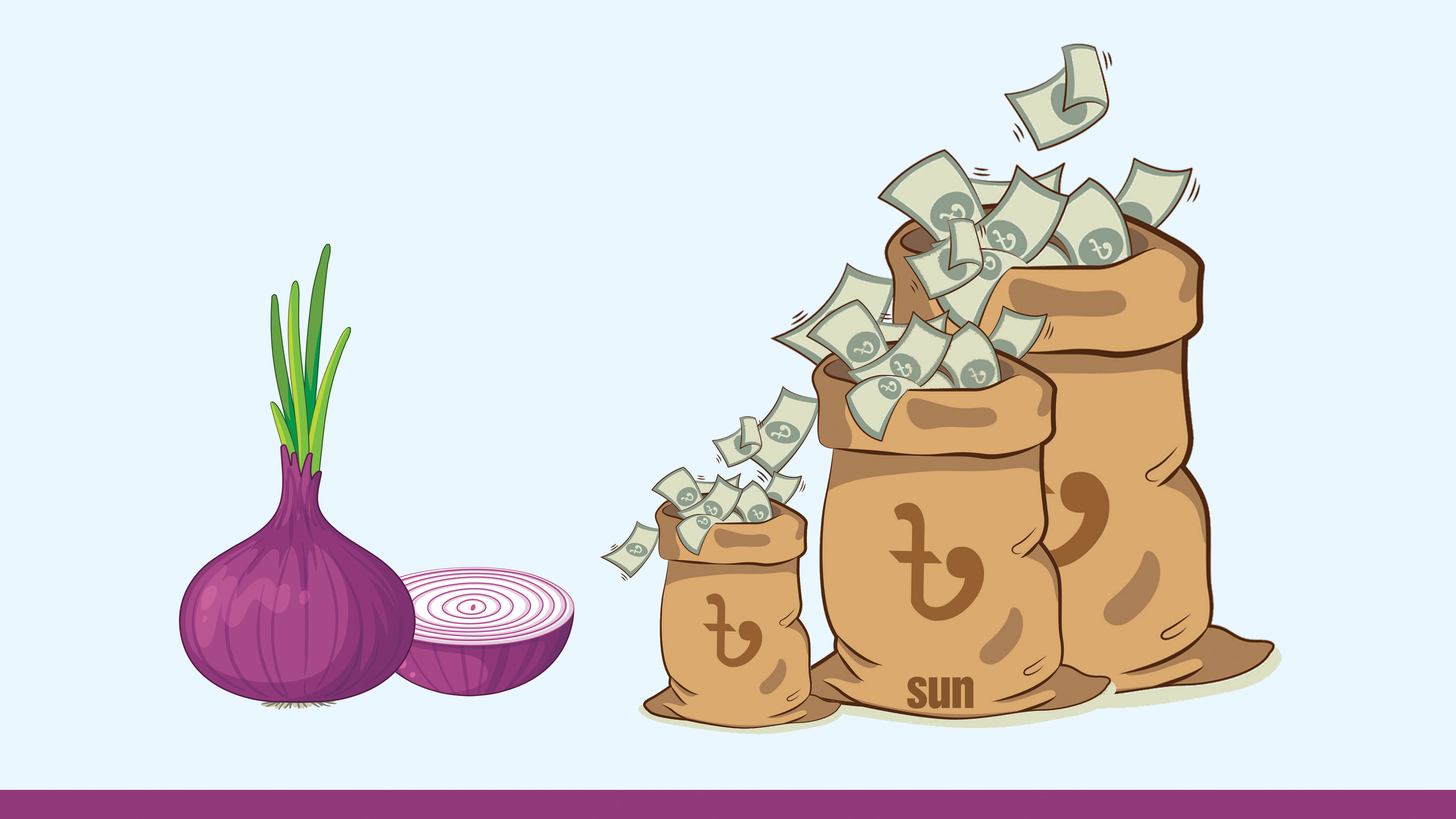Onion Price Manipulation
Crooked syndicates must be dealt with iron hand
Published: 09 Dec 2023

Within a mere day, onions have undergone a staggering price surge in Bangladesh, with local varieties selling for an exorbitant Tk190-210 per kilogram and imported Indian varieties for Tk170-200 on Saturday – a stark escalation from the already inflated Tk120-130 and Tk90-100, respectively, just a day earlier.
The notable scarcity at Khatunganj in Chattogram on Saturday, the largest wholesale market for kitchen items in the country, adds an unexpected dimension to the situation, given its ample onion stocks just a day prior.
This comes against the backdrop of India’s decision to extend the ban on onion exports until March 2024.
It strains credulity to believe that onion stocks could deplete entirely within a single day. Furthermore, there is barely any evidence of wholesale traders or importers acquiring onions at elevated prices from local or foreign sources overnight.
Only one thing that becomes evident from the situation is the authorities have hardly any control over the market, leaving it at the mercy of unscrupulous traders, often referred to as syndicates, whose influence seems to surpass that of the State.
Similar scenarios have unfolded with other essential items in recent years, questioning the government’s efficacy in managing various sectors.
Despite the government’s attempt to control prices for essential items like potatoes, onions, and eggs a couple of months ago, the market has witnessed continued fluctuations. Potato price, which was fixed at Tk30 a kg at the retail level on 7 October, surged to over Tk70 at some points following the price fixing and is currently hovering between Tk50 and Tk60.
The fixing of beef prices in the capital Dhaka later last week also proved to be mostly ineffective as the item continues to be sold at Tk100-150 higher at various areas in the city and even higher at super shops compared to the fixed price of Tk650 a kg.
The ineffectiveness of government decisions across various sectors, including transport, private healthcare, and education, raises doubts about the authority of government agencies.
The pressing question that looms large is – who will take responsibility for this chaos?
The unequivocal answer, despite its track record of shortcomings, is the government itself.
We do not want to believe that any group of vested interests or anyone else can be more powerful than the State. We firmly believe that the government, driven by a strong political will and a purported sense of accountability to the people, can dismantle any syndicate that makes windfall profits by taking people hostage or causing suffering to them by taking undue advantage of any situation.
Coming back to the onion predicament, the country’s annual demand is around 26 lakh tonnes, with a quarter of it met through imports, as reported by the commerce ministry and the Bangladesh Trade and Tariff Commission.
Opportunistic traders, with apparent disregard for the plight of consumers, manipulate prices whenever India – the primary onion import source for Bangladesh – announces any decision to impose export curbs or raise export tariffs, even if there is no rationale behind such decisions affecting the Bangladesh market overnight.
Therefore, these unscrupulous traders, who are willing to inflict suffering on people to satisfy their narrow interests, must face stringent measures.
The lax enforcement of laws by government regulators gives traders an unfair advantage, leading consumers to bear exorbitant prices for both imported and locally produced commodities.
Allowing impunity for such individuals would only perpetuate the victimisation of the country’s citizens by these self-serving individuals.
Agriculturalists and market analysts predict that onion price volatility will persist until early March due to a lean period in local onion cultivation.
We strongly urge the government to promptly arrange alternative sources for this kitchen staple from other countries. Failure to do so will result in the extraction of thousands of crores of taka from the pockets of consumers.
A rough calculation indicates that considering the country’s annual demand for onions at 27 lakh tonnes, approximately 7,400 tonnes of onions are consumed daily. If traders increase the price by Tk100 per kg, an astounding Tk74 crore is drained from people’s pockets every day. If this situation persists for a month, the additional cost escalates to over Tk2,200 crore.

